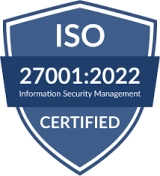Share on:
As an entrepreneur running a small and medium enterprise, some things are simply non-negotiable if you must remain in business.
Keeping records is one of them. Sadly, some people find it difficult and burdensome to complete this important chore. Let's take it as an unpleasant pill you have to take not minding its taste.
Even though humans are the most brilliant creations, we can't always rely on our brains to remember everything that occurs in our businesses. Can we just agree that when it comes to record-keeping, we can't do a good job of relying on our brains?
I can well remember wanting to monitor my monthly finances. I needed to know precisely where my money was going. I soon realized that the only way to achieve this was to keep track of every dime!
If keeping records is needed to thrive with personal finance, how much more for Small and Medium Enterprises?
According to the Small and Medium Enterprises Development Agency of Nigeria (SMEDAN), 50% of small businesses fail in their first year and ninety-five percent fail within the first five years of business. And the most common reason for this failure is a lack of bookkeeping knowledge among owners of these businesses.
Well, you can't practice bookkeeping without keeping records.
In this post, I will be addressing the basic Elements of good record-keeping for Small and Medium enterprises in 2023.
Here are what to look out for:
-
What Is Record Keeping for Small and Medium Enterprises?
-
How To Keep Records for Small and Medium Enterprises.
-
Elements of A Good Record-Keeping System.
-
Why Record Keeping Is Important For Small and Medium Enterprises.
What Is Record Keeping
A crucial component of corporate administration is record keeping, which entails monitoring each financial and nonfinancial transaction, asset, profit, and loss.
The process of methodically recording all financial transactions and other pertinent information of an enterprise is known as record keeping in the business world. This procedure is crucial for controlling cash flows, assuring the accuracy of financial accounts, and complying with legal and tax standards.
Simply put, maintaining accurate records is essential to the success of any enterprise. Accurately evaluating a company's success is difficult without comprehensive documentation of financial transactions. This can ultimately result in poor decisions and financial losses.
Keeping accurate records is crucial to managing a successful business. It promotes decision-making, guarantees compliance, and ultimately supports the business's financial health.
Pro Tip: Bookkeeping is strictly an accounting practice where the financial transactions of a business are kept and maintained daily. On the other hand, record keeping captures both monetary and non-monetary records of a business.
How To Keep Records For Small And Medium Enterprises
The following tips can help you maintain accurate records:
Establishing A Secure Record-Keeping System:
Choosing the system to employ for keeping records is the first step. The venerable manual approach entails maintaining data on paper or in various books.
The digital approach is the opposite. The use of electronic record-keeping and accounting software is increasing among small and medium-sized organizations as the world becomes increasingly digital.
This technique speeds up and simplifies some processes. Make sure your digital records are encrypted and safeguarded online before implementing a digital record system.
One such piece of computerized record-keeping software is the Tyms Book. With the help of this software, you may record sales, sync digital payments from several banks, and capture receipts and bar codes.
Keep Track Of All Your Income: Whether it comes from purchases, services, or investments, every dime should be recorded.
It's critical to keep track of all your expenses, including rent, bills, salaries, and taxes. This will assist you in understanding your financial flow and locating potential areas for savings.
Keep Invoices and Receipts: For effective record-keeping, you must keep receipts for all business costs. Ensure to keep a record of all invoices and receipts received and issued.
Also, follow up on outstanding invoices and reconcile your bank account.
Keep Track Of All Your Expenses: It's important to track all your expenses, including bills, rent, salaries, and taxes. This will help you understand your cash flow and identify areas where you can make savings.
Separate Business and Personal Finances: One of the biggest mistakes SMEs make is mixing business and personal finances. Make sure you separate the both.
Basic Elements Of A Good Record-Keeping System
You should create a system for keeping records that is straightforward, clear to grasp, dependable, and accurate. Here are a good number of basic elements of a good record-keeping system.
-
Records about personnel: If you have employees, you should keep track of their employment agreements, compensation, and benefits. You'll be able to follow employment rules and regulations if you do this.
-
Keep a copy of all the legal documents: These comprise legal documents about your company, such as contracts, licenses, permits, and insurance policies. By doing this, you can stay out of trouble and avoid penalties.
-
Invoicing: You should keep thorough records of all the invoices and receipts you issue and receive. This will make it easier for you to monitor payments, follow up on unpaid bills, and reconcile your bank account.
-
Financial records: Keeping track of your company's financial operations, such as income, expenses, and taxes, is crucial. This will assist you with budgeting, financial flow management, and appropriate tax return filing.
-
Inventory records: If your company sells tangible goods, you should keep thorough records of your stock. This will enable you to keep track of sales, monitor your stock levels, and prevent stock-outs.
Why Record Keeping Is Important To SMEs
-
Monitor Your Progress Towards Goals: You certainly will not experience any progress with monitoring your business goals, if you are unable to keep track of your business records. What other way to know if you are at par with your business goals than to check your records? From finance to legal to HR.
-
Comply with laws: Even if you think record keeping is not for you as a business owner, one sure thing is you have to comply with laws to stay in business. A good example is taxing. Different regulations work for different countries. Whichever way, you don't want to be found disobeying laws.
-
Make Business Decisions: Decision-making becomes easier when your business records are ready and within reach. The last thing you need is to begin to go through the hassle of capturing your records the moment you are faced with a decision.
Overview
One of the most crucial parts of owning and running a business is maintaining correct financial records. You can manage cash flow, check your business's health, satisfy your tax requirements, and monitor its potential with the use of well-organized records.
Accurate record-keeping is essential in the realm of finance. It's an essential component of handling a business's finances and an area where companies cannot afford to skimp. Businesses that prioritize record-keeping have a greater chance of long-term success because they can base their decisions on solid information.
Whether you operate as a start-up or a small medium enterprise, record keeping is inevitable.
I believe you have gained enough insight to go and tidy your business records!
Drop us a comment or two, we want to read your thoughts.


Blessing Obiora
3 mins read


Chineye Ochem
3 mins read


